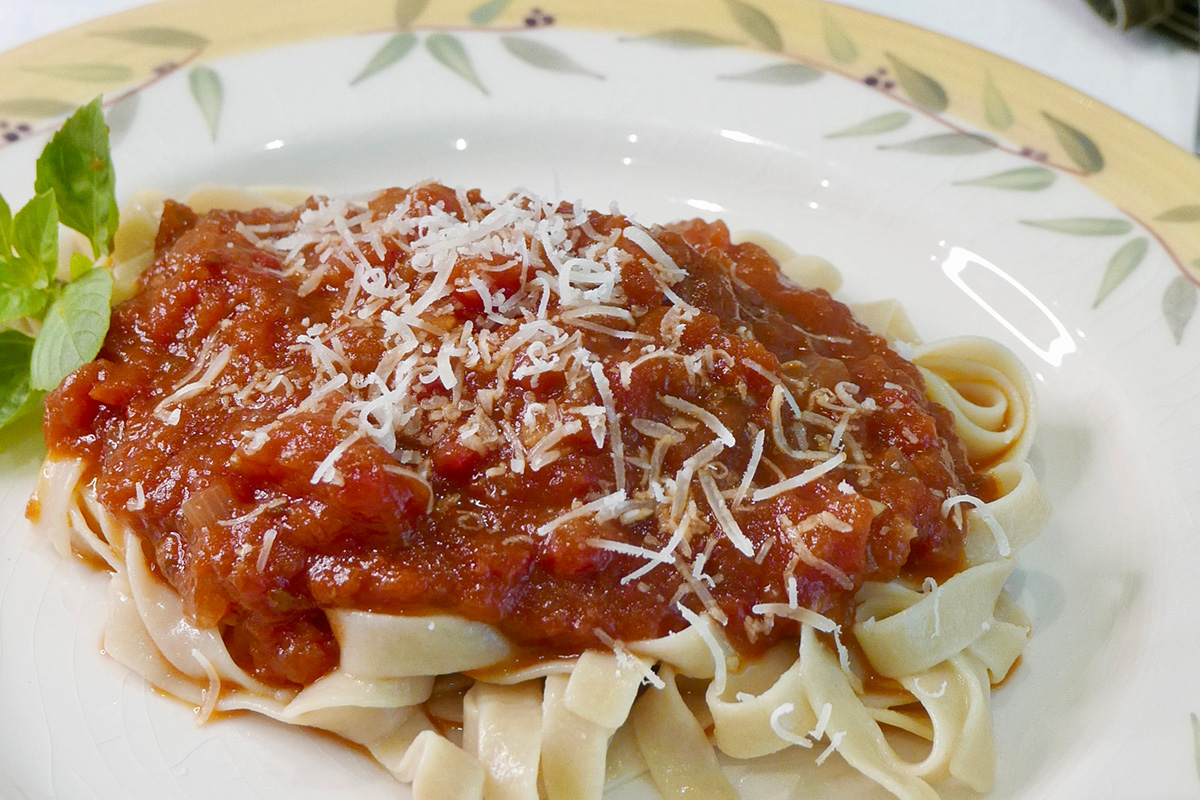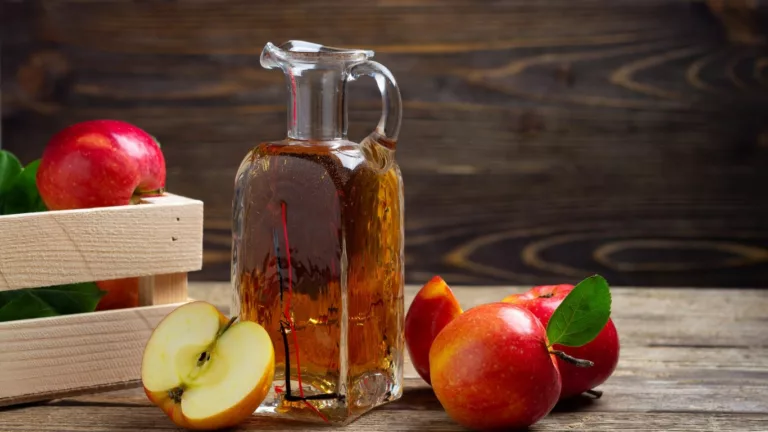GERD-Friendly Sauces: Delicious Solutions for Acid Reflux Sufferers
GERD-Friendly Sauce Guide: Tantalize your taste buds while managing acid reflux. From creamy avocado dressing to tomato-free marinara, find the perfect sauces to suit your GERD needs.
Introduction to GERD-Friendly Sauces
Gastroesophageal Reflux Disease (GERD) is a common digestive disorder that affects millions of people worldwide. It occurs when stomach acid frequently flows back into the esophagus, causing uncomfortable symptoms such as heartburn, regurgitation, and chest pain. While managing GERD typically involves lifestyle changes and medication, one crucial aspect that often gets overlooked is the choice of sauces in our diet.
In this comprehensive guide, we will explore the world of GERD-friendly sauces, understanding what makes them suitable for those with acid reflux, and discovering delicious recipes to elevate your meals without triggering uncomfortable symptoms.
Key Considerations for GERD-Friendly Sauces
Low Acidic Ingredients
GERD-friendly sauces are characterized by their low acidity, as acidic foods can aggravate reflux symptoms. To create sauces suitable for GERD sufferers, focus on using alkaline ingredients like avocados, almonds, and leafy greens. These ingredients not only add a creaminess and depth of flavor to your sauces but also help soothe irritated esophageal tissues.
Avoiding Common GERD Triggers
Certain ingredients are notorious for triggering GERD symptoms in susceptible individuals. To create sauces that won’t exacerbate acid reflux, steer clear of tomatoes, citrus fruits, vinegar, and garlic. Instead, opt for alternatives like roasted red peppers, cucumbers, and fresh herbs to infuse your sauces with delicious taste.
Balancing Flavor and GERD-Friendly Options
Finding the right balance between flavor and GERD-friendliness is crucial in creating satisfying sauces. Experiment with herbs, spices, and low-acidic fruits to enhance the taste without compromising on digestive comfort. Achieving a well-rounded, delicious sauce will make your GERD-friendly meals enjoyable for everyone at the table.

Top 10 GERD-Friendly Sauces Recipes
Creamy Avocado Dressing
Creamy and rich, this avocado dressing is the perfect accompaniment to salads and grilled vegetables. With its buttery texture and mellow taste, you won’t even miss traditional high-acid dressings.
Ingredients:
- Ripe avocados
- Greek yogurt
- Fresh lime juice
- Olive oil
- Fresh cilantro
- Salt and pepper
Roasted Red Pepper Sauce
Packed with antioxidants and low in acidity, roasted red pepper sauce adds a delightful smoky flavor to pasta, sandwiches, and roasted meats.
Ingredients:
- Roasted red peppers
- Almonds
- Olive oil
- Lemon juice
- Paprika
- Garlic-infused oil (optional)
- Salt and pepper
Fresh Herbs and Yogurt Dip
This refreshing dip combines the goodness of yogurt with a medley of fresh herbs, creating a light and tangy sauce perfect for dipping raw vegetables or grilled meats.
Ingredients:
- Greek yogurt
- Fresh dill
- Fresh mint
- Fresh parsley
- Lemon zest
- Garlic-infused oil (optional)
- Salt and pepper
Lemon-Dill Tahini Sauce
Tahini, made from ground sesame seeds, offers a nutty base for this sauce, while the lemon and dill add brightness and zest. Use it as a dressing, dip, or marinade.
Ingredients:
- Tahini paste
- Fresh lemon juice
- Fresh dill
- Water
- Garlic-infused oil (optional)
- Salt and pepper
Tomato-Free Marinara Sauce
Indulge in the classic Italian flavors without the acidity of tomatoes. This tomato-free marinara sauce is a game-changer for pasta lovers with GERD.
Ingredients:
- Carrots
- Beets
- Onions
- Olive oil
- Fresh basil
- Dried oregano
- Garlic-infused oil (optional)
- Salt and pepper
Cucumber and Mint Raita
Cooling and soothing, this yogurt-based sauce pairs perfectly with spicy dishes or as a refreshing dip for pita bread and kebabs.
Ingredients:
- Greek yogurt
- Fresh cucumber
- Fresh mint
- Cumin powder
- Paprika
- Garlic-infused oil (optional)
- Salt and pepper
Garlic and Olive Oil Aioli
For those who love the taste of garlic but can’t tolerate the high acidity, this garlic-infused aioli is a great alternative, offering all the flavor without the burn.
Ingredients:
- Olive oil
- Egg yolk
- Fresh lemon juice
- Garlic-infused oil
- Dijon mustard
- Salt and pepper
Honey Mustard Vinaigrette
This sweet and tangy vinaigrette is a delightful addition to salads and works beautifully as a glaze for grilled chicken or fish.
Ingredients:
- Dijon mustard
- Honey
- Apple cider vinegar
- Olive oil
- Fresh thyme
- Salt and pepper
Ginger Turmeric Sauce
With anti-inflammatory properties, this sauce boasts the health benefits of ginger and turmeric, adding a unique and earthy flavor to your dishes.
Ingredients:
- Fresh ginger
- Fresh turmeric
- Coconut milk
- Fresh lime juice
- Maple syrup
- Salt and pepper
Basil Pesto (without garlic)
A classic favorite, this garlic-free basil pesto is a delightful sauce for pasta or as a topping for chicken or fish.
Ingredients:
- Fresh basil
- Pine nuts
- Parmesan cheese
- Olive oil
- Lemon juice
- Salt and pepper
Store-Bought GERD-Friendly Sauce Options
While making your own sauces allows full control over ingredients, there are also some reputable store-bought options for those seeking convenience. Look for brands that specifically label their sauces as “GERD-friendly” or “low-acid,” and always check the ingredient list to ensure it aligns with your dietary needs.

Cooking Tips for Making Your Sauces GERD-Friendly
Acid Substitutes and Enhancers
Explore alternatives to acidic ingredients. For instance, use lemon-infused oils, apple cider vinegar substitutes, or non-citrus fruits to add tartness to your sauces.
GERD-Friendly Seasonings and Spices
Experiment with herbs like basil, thyme, mint, and parsley, as they add depth and character to your sauces without the acidity of traditional spices.
Thickeners and Texture Enhancers
Use ingredients like avocados, nuts, or yogurt to achieve the desired consistency and creaminess in your sauces.
Incorporating GERD-Friendly Sauces into Your Diet
Pairing Sauces with GERD-Friendly Foods
GERD-friendly sauces complement well with grilled chicken, fish, lean meats, and plant-based dishes. Incorporate these sauces into your meals to enjoy flavorful, soothing, and reflux-friendly dining experiences.
Creative Uses in Everyday Meals
Think beyond salads and pasta. Use GERD-friendly sauces as dips, marinades, or sandwich spreads to elevate the taste of your favorite dishes.

Lifestyle and Dietary Changes for Managing GERD
Adopting a GERD-Friendly Diet
Apart from incorporating GERD-friendly sauces, managing GERD requires adopting an overall GERD-friendly diet, including smaller and more frequent meals, avoiding trigger foods, and maintaining a healthy weight.
GERD Symptom Management Strategies
In addition to dietary changes, lifestyle modifications like raising the head of your bed, quitting smoking, and managing stress can significantly improve GERD symptoms.
Conclusion
GERD-friendly sauces open up a world of delicious possibilities for those managing acid reflux. By choosing low-acidic ingredients, avoiding common triggers, and experimenting with flavorful alternatives, you can create mouthwatering sauces that won’t cause discomfort. Embrace the joy of cooking with GERD-friendly sauces and enjoy every meal without worrying about the aftermath. Always consult with a healthcare professional or a registered dietitian to create a personalized GERD management plan that best suits your needs and preferences.
Appendices:
References
- Mayo Clinic Staff. (2021). Gastroesophageal reflux disease (GERD). Mayo Clinic. https://www.mayoclinic.org/diseases-conditions/gerd/symptoms-causes/syc-20361940
- National Institute of Diabetes and Digestive and Kidney Diseases. (2020). Gastroesophageal Reflux (GER) and Gastroesophageal Reflux Disease (GERD) in Adults. https://www.niddk.nih.gov/health-information/digestive-diseases/acid-reflux-ger-gerd-adults#:~:text=Print%20All%20Sections-,Definition%20%26%20Facts,leads%20to%20complications%20over%20time.
- Harvard Health Publishing. (2020). Gastroesophageal reflux disease (GERD). Harvard Medical School. https://www.health.harvard.edu/a_to_z/gastroesophageal-reflux-disease-gerd-a-to-z#:~:text=Gastroesophageal%20reflux%20disease%20(GERD)%20is,your%20mouth%20to%20your%20stomach.
- National Institute of Diabetes and Digestive and Kidney Diseases. (2017). Eating, Diet, & Nutrition for GER & GERD in Adults. https://www.niddk.nih.gov/health-information/digestive-diseases/acid-reflux-ger-gerd-adults/eating-diet-nutrition
FAQs (Frequently Asked Questions)
Q1: Can I still enjoy flavorful sauces if I have GERD? A: Yes, absolutely! With the right ingredients and creative combinations, GERD-friendly sauces can be just as delicious as traditional ones, without triggering acid reflux symptoms.
Q2: Are there store-bought GERD-friendly sauces available? A: Yes, some brands offer sauces specifically labeled as “GERD-friendly” or “low-acid.” However, it’s essential to carefully read the ingredient list to ensure they align with your dietary needs.
Q3: Can I use GERD-friendly sauces for marinades? A: Yes, GERD-friendly sauces make excellent marinades for chicken, fish, and other meats. They infuse your dishes with flavors without causing discomfort.
Q4: Can I use garlic-infused oil instead of fresh garlic in recipes? A: Yes, garlic-infused oil can provide the essence of garlic without the acidity. It’s an excellent substitute for fresh garlic in GERD-friendly recipes.
Disclaimer
The information provided in this article is for educational purposes only and should not be considered as medical advice. Gastroesophageal Reflux Disease (GERD) is a medical condition, and individuals with acid reflux symptoms should consult a healthcare professional for proper diagnosis and treatment. While the GERD-friendly sauces mentioned in this article aim to reduce acidity and potential triggers, individual reactions may vary. Always consult with a registered dietitian or healthcare provider to create a personalized diet plan that suits your specific needs and medical conditions.
It is essential to be mindful of your own body’s response to different foods and ingredients and make choices that align with your health requirements. The author and publisher of this article are not responsible for any adverse effects or consequences resulting from the use or misuse of the information provided herein.

Camellia Wulansari is a dedicated Medical Assistant at a local clinic and a passionate health writer at Healthusias.com. With years of hands-on experience in patient care and a deep interest in preventive medicine, she bridges the gap between clinical knowledge and accessible health information. Camellia specializes in writing about digestive health, chronic conditions like GERD and hypertension, respiratory issues, and autoimmune diseases, aiming to empower readers with practical, easy-to-understand insights. When she’s not assisting patients or writing, you’ll find her enjoying quiet mornings with coffee and a medical journal in hand—or jamming to her favorite metal band, Lamb of God.







